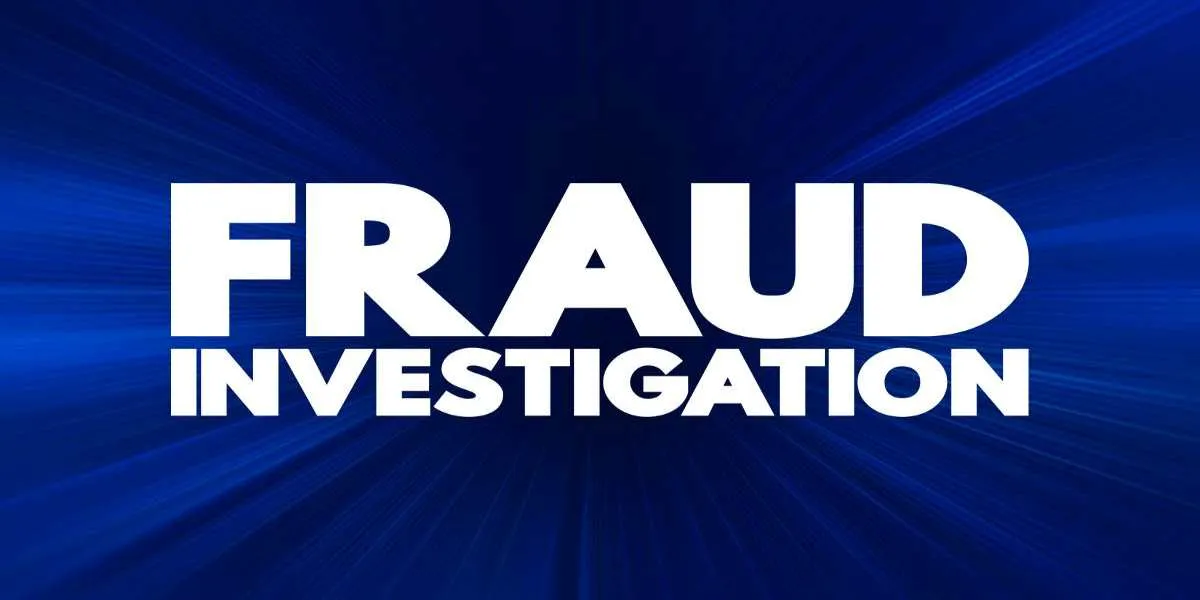Introduction to the DoubleVerify Class Action Lawsuit
The DoubleVerify class action lawsuit seeks to represent purchasers or acquirers of DoubleVerify Holdings, Inc. (NYSE: DV) common stock between November 10, 2023 and February 27, 2025, inclusive (the “Class Period”). Captioned Electrical Workers Pension Fund, Local 103, I.B.E.W. v. DoubleVerify Holdings, Inc., No. 25-cv-04332 (S.D.N.Y.), the DoubleVerify class action lawsuit charges DoubleVerify and certain of DoubleVerify’s top executives with violations of the Securities Exchange Act of 1934.
If you suffered substantial losses and wish to serve as lead plaintiff of the DoubleVerify class action lawsuit, or just have general questions about you rights as a shareholder, please contact attorney Timothy L. Miles of the Law Offices of Timothy L. Miles, at no cost, by calling 855/846-6529 or via e-mail at [email protected].
Lead plaintiff motions for the DoubleVerify class action lawsuit must be filed with the court no later than July 21, 2025.
Overview of the DoubleVerify Class Action Lawsuit
The DoubleVerify lawsuit is a securities class action lawsuit that centers on allegations of misleading investors through the provision of inaccurate or incomplete information regarding the company’s financial status and operations. Such allegations, if proven true, could result in significant legal and financial consequences for DoubleVerify. You need to grasp the magnitude of these claims and their potential impact on the company’s future.
Understanding the DoubleVerify lawsuit requires analyzing the details of the allegations. Investors claim that DoubleVerify’s disclosures were not as transparent as they should have been, leading to financial losses once the truth was revealed. Legal experts are examining whether there was a deliberate attempt to mislead stakeholders, which could lead to punitive measures.
For anyone involved in investing, the DoubleVerify lawsuit serves as a stark reminder of the importance of due diligence and the risks associated with corporate investments. As you navigate through the nuances of this case, consider how transparency and accountability play pivotal roles in maintaining investor trust and confidence in the market.
Allegations in the DoubleVerify Class Action Lawsuit
DoubleVerify provides media effectiveness platforms.
- The DoubleVerify lawsuit alleges that defendants throughout the Class Period made false and/or misleading statements and/or failed to disclose that:
- (DoubleVerify’s customers were shifting their ad spending from open exchanges to closed platforms, where DoubleVerify’s technological capabilities were limited and competed directly with native tools provided by platforms like Meta Platforms and Amazon;
- DoubleVerify’s ability to monetize on its Activation Services was limited because the development of its technology for closed platforms was significantly more expensive and time-consuming than disclosed to investors;
- DoubleVerify’s Activation Services in connection with certain closed platforms would take several years to monetize; (iv) DoubleVerify’s competitors were better positioned to incorporate AI into their offerings on closed platforms, which impaired DoubleVerify’s ability to compete effectively and adversely impacted DoubleVerify’s profits;
- DoubleVerify systematically overbilled its customers for ad impressions served to declared bots operating out of known data center server farms; and
- DoubleVerify’s risk disclosures were materially false and misleading because they characterized adverse facts that had already materialized as mere possibilities.
The DoubleVerify class action lawsuit further alleges that on February 28, 2024, DoubleVerify issued lower revenue growth expectations for the first quarter of 2024 due to “a slow start by brand advertisers and a slow ramp by recently signed” customers. On this news, the price of DoubleVerify stock fell more than 21%, according to the complaint.
Then, on May 7, 2024, DoubleVerify cut its full-year 2024 revenue outlook due to customers that were pulling back on their ad spending. On this news, the price of DoubleVerify stock fell nearly 39%, according to the DoubleVerify lawsuit.

The DoubleVerify class action lawsuit further alleges that on February 27, 2025, DoubleVerify reported lower-than-expected fourth quarter 2024 sales and earnings due in part to reduced customer spending, and defendants further disclosed that the shift of ad dollars from open exchanges to closed platforms was negatively impacting DoubleVerify.
On this news, the price of DoubleVerify stock fell more than 36%, according to the DoubleVerify lawsuit.
What is the Lead Plaintiff Process Under the PSLRA?
The Lead Plaintiff Process under the Private Securities Litigation Reform Act of 1995 (PSLRA) is a critical mechanism in securities class action lawsuits, designed to ensure that the most capable and representative plaintiffs lead the litigation. The process begins when a securities class action is filed, often in response to alleged misconduct by a company, such as in cases like the DoubleVerify class action lawsuit. Upon filing, the court issues a notice to potential class members, inviting them to apply for the role of lead plaintiff. This notice is typically published in widely circulated financial newspapers or online platforms.
Interested parties must file a motion with the court expressing their desire to be appointed as lead plaintiff. The PSLRA mandates that the court select the lead plaintiff who has the largest financial interest in the case and who also meets the requirements of adequacy and typicality under Rule 23 of the Federal Rules of Civil Procedure. In determining financial interest, courts consider factors such as the amount of shares purchased, the net funds expended, and the approximate losses suffered.

Adequacy refers to the ability of the lead plaintiff to fairly and adequately protect the interests of the class members. Typicality means that the claims or defenses of the lead plaintiff are typical of those of the class. For example, in the MicroStrategy lawsuit, potential lead plaintiffs would need to prove significant investment losses due to alleged fraudulent behavior by MicroStrategy.
Once appointed, the lead plaintiff assumes control over major decisions in the litigation process, including selecting and instructing counsel. This role is pivotal as it influences both legal strategy and potential settlement negotiations. The lead plaintiff’s actions can significantly impact the outcome of securities class actions, ensuring that aggrieved investors receive fair representation and compensation for their losses.
The Lead Plaintiff Deadline in the DoubleVerify Class Action Lawsuit
Lead plaintiff motions for the DoubleVerify class action lawsuit must be filed with the court no later thanJuly 21, 2025. When a securities class action is filed:
- The person who files the first complaint is required to publish a notice announcing the filing.
- Anyone who wants to be the lead plaintiff on behalf of the class must thereafter file a motion to be appointed as lead plaintiff(s) no later than 60 days after the notice was published.
The Benefits of Serving as a Lead Plaintiff in the Doubleverify Lawsuit
- Negotiating more competitive attorney fees and reducing litigation costs.
- Managing the litigation by overseeing the progress of the case and reviewing important filings.
- Participating in mediation and settlement discussions.
- Having a voice in decision-making processes regarding the settlement.
- No financial risk, as lead counsel covers all costs and expenses and are paid only if they secure a settlement or judgment recovery for the class
- Potentially enjoying long-term benefits from governance reform resulting from the litigation.
The Responsibilities the Lead Plaintiff Will Have in the Doubleverify Lawsuit
- Selecting, monitoring, and overseeing Lead Counsel.
- Reviewing and commenting on court filings on behalf of the class.
- Discussing litigation strategies with the Lead Counsel.
- Attending depositions (if necessary) and giving a deposition.
- Attending hearings (if necessary).
- Participating in mediation and the trial (if necessary).
- Provide input on any decision concerning the settlement of the securities class action.
The Eligibility Criteria for Lead Plaintiff Appointment in the Doubleverify Class Action Lawsuit
To be eligible for appointment as the lead plaintiff in the DoubleVerify class action lawsuit, an investor must meet the following criteria:
- Securities Acquisition: The investor must have purchased or acquired DoubleVerify Holdings, Inc. (NYSE: DV) securities between November 10, 2023 and February 27, 2025.
- Financial Losses: The investor must have suffered financial losses as a direct result of the alleged securities fraud perpetrated by Doubleverify and its executives.
- Typicality and Adequacy: The investor’s legal claims must be typical of those asserted on behalf of the class, and they must demonstrate their ability to adequately represent the interests of the entire class through experience, resources, and the absence of conflicts of interest.
It is crucial to note that both domestic and international investors who meet these criteria are eligible to seek appointment as the lead plaintiff in the class action lawsuit, as courts have consistently recognized the rights of non-U.S. investors in securities class actions.
Opting Out of a Securities Class Action
Opting out of a securities class action is an important decision for investors who have been affected by corporate misconduct, fraud, or other violations of securities laws. When a class action lawsuit is filed, it typically includes a group of plaintiffs who have suffered similar harm, allowing them to combine their claims into one legal action against the defendant.

However, individual investors have the option to opt out of the class action, meaning they choose not to participate in the collective lawsuit and instead pursue their own legal remedies independently.
The decision to opt out can be influenced by various factors. For instance, investors might opt out if they believe they can achieve a better outcome through individual litigation or if they have unique damages that are not adequately addressed by the class action settlement.
Additionally, opting out allows investors to retain control over their legal strategy and settlement negotiations. This can be particularly relevant in high-profile cases like the DoubleVerify lawsuit, where specific investor interests and damages might vary significantly.
However, opting out of a securities class action also comes with its challenges. Individual litigation can be costly and time-consuming compared to participating in a class action where legal expenses are shared among all plaintiffs.
Furthermore, the outcome of individual lawsuits can be uncertain, and there is a risk that the court may not award damages as favorably as in a class action settlement. Investors must weigh these considerations carefully before making their decision.
In the context of the DoubleVerify lawsuit, investors who feel that their losses from alleged securities violations are substantial or unique may consider opting out to seek a more tailored resolution. On the other hand, those who prefer a more straightforward and less risky approach might choose to remain part of the class action.
Ultimately, whether to opt out or stay in a securities class action like the DoubleVerify lawsuit requires careful analysis of one’s specific circumstances and consultation with legal counsel to determine the best course of action.
The Pros to Opting Out of a Securities Class Action
Securities class actions are lawsuits filed by investors who have suffered financial losses due to fraudulent activities or misrepresentation by a company. While participating in such actions may seem like a straightforward way to seek compensation, opting out of a securities class action can offer several distinct advantages. One prominent example is the DoubleVerify class action lawsuit, which illustrates the benefits of pursuing individual claims.
One significant advantage of opting out of a securities class action is the potential for higher recovery. In class actions, the settlement amount is typically divided among all plaintiffs, which can result in relatively modest individual payouts. By contrast, investors who opt out and file individual lawsuits may secure more substantial compensation tailored to their specific losses.
TheDoubleVerify class action lawsuit demonstrates how opting out allowed certain investors to negotiate settlements that more accurately reflected their unique circumstances and financial damages.

Another benefit of opting out is greater control over litigation strategy and decision-making. In a securities class action, the lead plaintiff and their attorneys make crucial decisions that impact all class members. Opting out enables investors to retain their own legal representation, ensuring that their interests are prioritized and their unique needs addressed.
For instance, in the DoubleVerify class action lawsuit,, those who opted out could work closely with their lawyers to develop personalized litigation strategies, which may have contributed to more favorable outcomes.
Opting out also allows investors to avoid the lengthy and often unpredictable process associated with class action lawsuits. Class actions can take years to resolve, with numerous procedural hurdles and delays along the way.
Investors who choose to pursue individual claims may expedite the resolution of their cases, potentially receiving compensation sooner. The DoubleVerify class action lawsuit, is a prime example of how opting out can streamline the legal process, enabling investors to achieve timely justice.
Moreover, opting out provides an opportunity for confidentiality and discretion that is not available in class actions. Class action settlements are typically public, which can expose investors to unwanted attention or scrutiny. Individual lawsuits can be settled privately, allowing investors to maintain anonymity while still securing compensation. In the case of the MicroStrategy lawsuit,, some investors may prefer the privacy afforded by opting out, avoiding public disclosure of sensitive financial information.
Lastly, individual lawsuits can sometimes address specific grievances or claims that class actions might overlook. Class actions are designed to address common issues affecting a large group of plaintiffs, which may not fully capture the nuances of each investor’s situation.
Opting out allows investors to present detailed evidence and arguments related to their particular experiences and damages. The DoubleVerify class action lawsuit, highlighted how individual claims could surface unique aspects of fraud or misrepresentation that were not covered in the broader class action.
In conclusion, while securities class actions offer a collective avenue for seeking redress, opting out presents various advantages that may better serve individual investors’ interests. The DoubleVerify class action lawsuit, underscores the benefits of higher recovery potential, greater control over legal strategies, expedited resolution, confidentiality, and tailored grievance redressal. Investors should carefully weigh these pros when considering their options in securities litigation.
The Cons to Opting Out of a Securities Class Action
Opting out of a securities class action lawsuit often raises several consequential concerns for investors. One major drawback is the potential loss of collective power. In a class action, the claims of numerous investors are aggregated, which creates a stronger bargaining position against the defendant. By opting out, an individual investor forfeits the advantage of this collective strength and must pursue litigation independently, which can be both financially and strategically disadvantageous.
Furthermore, the legal costs associated with individual litigation can be prohibitively expensive. Class actions typically operate on a contingency fee basis, where attorneys are only paid if the case is successful. On the other hand, individual lawsuits require upfront legal fees and expenses, which may not be feasible for every investor.
Another significant con to opting out of a securities class action lawsuit is the risk of inconsistent or less favorable outcomes. In a class action, the settlement or judgment is distributed among all members of the class, ensuring that every investor receives compensation proportionate to their losses. However, when an investor opts out and pursues individual litigation, there is no guarantee that they will receive a more favorable outcome.
In fact, they may end up with a smaller recovery or even lose the case altogether. This inconsistency can lead to dissatisfaction and financial strain, especially if the investor’s resources are limited. The DoubleVerify class action lawsuit serves as a pertinent example where staying within the class could potentially yield more predictable and equitable results compared to going it alone.

Moreover, opting out of a securities class action lawsuit can lead to lengthy and complex legal battles. Class actions are generally more streamlined due to the collective nature of the claims and the shared legal representation.
Conversely, individual lawsuits necessitate separate discovery processes, pretrial motions, and potentially multiple court appearances, which can prolong the litigation process significantly.
This extended timeline can be stressful and demanding for an individual investor who may not have the time or expertise to navigate the intricacies of securities law. Additionally, pursuing an individual claim might require expert testimony and detailed financial analysis, further complicating the case and increasing costs.
Lastly, there is an element of uncertainty regarding settlement negotiations when opting out of a securities class action lawsuit. In a class action, settlements are typically negotiated by experienced attorneys who have a comprehensive understanding of the case and its merits. These attorneys often have established reputations and leverage that can facilitate favorable settlements.
On the other hand, an individual investor must rely on their own legal counsel to negotiate terms, which may not always result in a better deal. The DoubleVerify lawsuit illustrates this point well; staying in the class could ensure that investors benefit from expertly negotiated settlements rather than risking potentially inferior outcomes through independent litigation.
In conclusion, while opting out of a securities class action lawsuit might seem appealing to some investors seeking autonomy or potentially higher recoveries, it comes with significant risks and disadvantages. The potential loss of collective bargaining power, higher legal costs, inconsistent outcomes, prolonged litigation processes, and uncertain settlement negotiations all underscore the challenges faced by those who choose to go it alone.
Therefore, investors should carefully weigh these cons against any perceived benefits before deciding to opt out of such lawsuits.
Contact Timothy L. Miles Today About a MicroStrategy Class Action Lawsuit
If you suffered losses in MicroStrategy stock, call us today for a free case evaluation about a DoubleVerify class action lawsuit. 855-846-6529 or [email protected] (24/7/365).
Timothy L. Miles, Esq.
Law Offices of Timothy L. Miles
Tapestry at Brentwood Town Center
300 Centerview Dr. #247
Mailbox #1091
Brentwood,TN 37027
Phone: (855) Tim-MLaw (855-846-6529)
Email: [email protected]
Website: www.classactionlawyertn.com
FacebookLinkedinPinterestyoutube



